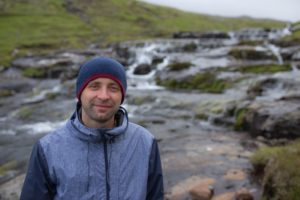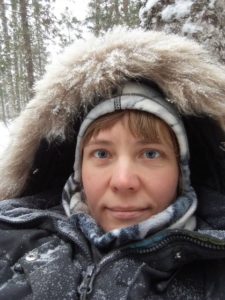The NERC Arctic Office, together with the UK Science and Innovation Network in Russia and Yugra State University are organising a UK-Russia Arctic Science Links Webinar on the 14th September 2020, from 1100 to 1200pm UK time.
Time: 14 September 2020, 11:00-1200pm UK time
Venue: Online (dial-in details to be circulated nearer the time)
Organisers: NERC Arctic Office, UK Science and Innovation Network in Russia and Yugra State University
Eventbrite registration link: https://www.eventbrite.co.uk/e/116703468215
Summary
Join us for the webinar to hear directly from Yugra State University’s leading researchers on the University’s ongoing and future scientific projects linked to the Arctic and climate change. Topics include: environmental monitoring, paleo-climate reconstruction, peatlands & wetlands and, carbon cycling. Discover the fantastic Mukhrino Research Station and hear about opportunities for fieldwork in West Siberia, and learn more about the region and what makes it a unique research environment.
Located in the north of West Siberia, Yugra State University is an exciting place for Arctic research. A member of the University of the Arctic, the University is home to the UNESCO chair on “Environmental dynamic and global climate changes” and manages its very own Mukhrino Research Station which is part of the EU Horizon 2020 INTERACT programme (details below).
The University has links with the UK science community and is keen to develop more. In February this year, ARCTIS2020 – a bespoke UK-Russia field course for early career researchers in the Russian Arctic – was organised in Khanty-Mansyisk, at the University and the Mukhrino Research Station, by the UK Polar Network and APECS Russia.
Speakers

Dr Evgeny Zarov
Researcher, UNESCO chair “Environmental dynamic and global climate changes”, Yugra State University (Khanty-Mansiysk, Russia)
Research interests: peatlands and peat properties, GIS, carbon sequestration and its storage in the high latitude soils, hydrology
Studied at Saratov State Technical University (Russia), Faculty of Ecology, and Utrecht University (the Netherlands), Faculty of Physical Geography. Arrived at Yugra State University in 2009 and has been involved in science activities of the UNESCO chair. 11 years of active field work in West Siberian taiga and tundra zones. Involved in several international scientific and educational projects (including Interact, ERASMUS+, CNRS.). Current activities are related to developing international collaboration. Google scholar & Research gate profiles

Dr Nina Filippova
Senior researcher, UNESCO chair “Environmental dynamic and global climate changes”, Yugra State University (Khanty-Mansiysk, Russia)
Research interests: mycology, funga of West Siberia, fungi of peatlands
Since 2007 Nina has been working in Yugra State University as an engineer of Mukhrino research station, researcher of UNESCO chair. Since 2010 Nina has been developing the collection of fungi (the Fungarium of Yugra State University) and is involved in the regional initiative on biodiversity data digitisation. Nina is actively participating in science outreach and set up a local mycological society and a citizen science community in the region. Google scholar & Research gate profiles

Dr Egor Dyukarev
Lead researcher, UNESCO chair “Environmental dynamic and global climate changes”, Yugra State University (Khanty-Mansiysk, Russia)
Research interests: climate change, microclimate, heat and mass transfer, soil temperature, bog ecosystems, carbon balance, greenhouse gases, methane, carbon dioxide, mathematical modeling
Graduated from Tomsk State University: Master’s (1995), PhD (1999). Has published about 50 peer‐reviewed scientific articles and five book contributions related to carbon balance of West Siberian peatlands, regional climate changes, analyses of microclimates of wetland and forest landscapes, vegetation cover mapping using satellite images, and observation and modelling of soil thermal regimes with a focus on seasonal frozen layer dynamics. Currently working with chamber techniques for measuring and estimating GHGs fluxes in wetland ecosystems and modeling wetland soil thermal regime. Research gate profile
Background
Yugra State University
Located in the city of Khanty-Mansiisk, Yugra State University is the central university in the north of West Siberia. The University is a member of UArctic, INTERACT, National Arctic Research and Education Consortium and other networks such as: PEEX, SecNet, Scannet, НАНОК.
Graduate students mostly get employed in the region (boreal and Arctic zones). All educational programmes at the University are therefore adapted to the regional needs and focus on such areas as: Indigenous People (Languages and Justice), Oil and Gas Engineering, Biology (biodiversity of West Siberia), Ecology and Environmental Management (including special courses: Ecosystem services, Use and Protection of Arctic Resources).
Mukhrino Field Station (60.8889N 68.70278E) is located in the middle taiga zone of West Siberia, by the Irtysh river. The station was established as a part of the UNESCO chair “Environmental dynamic and global climate changes” of Yugra State University in 2009. Equipped with modern facilities, it allows conducting year-round long-term scientific research, scientific field trips, workshops, symposia and other events both at national and international level.
The main topics of scientific research include climate change, biodiversity (fauna, vegetation, mycology, bryology), carbon and water cycling in peatland ecosystems and paleo-ecology of West Siberia. The station is also used for the spatial comparison of key areas in S-N transects as an analogue for climate change and bioms shift over time.
For more details on the station visit: https://mukhrinostation.com/
If you would like to register to attend this event, please go to the Eventbrite registration page here:
Eventbrite registration link: https://www.eventbrite.co.uk/e/116703468215